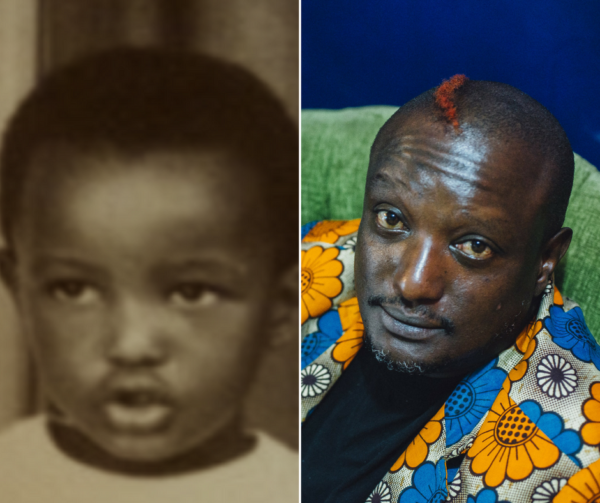In just two days, on the 18th, we will celebrate the birthday of one of the most beloved gems of contemporary African literature: Kenyan author Binyavanga Wainaina. In celebration of his 46th birthday, we reflect on Wainaina’s iconic legacy.
For almost 15 years, we have had the pleasure of witnessing Wainaina’s valuable contributions to literature and publishing. In 2002, he won the Caine Prize for his debut short story, “Discovering Home”. Shortly after, he became the founding editor of Kwani?, a literary magazine that publishes contemporary African writing. Then, in 2005, Wainaina published one of his most well-known essays, How to Write About Africa. This satirical piece highlights how mainstream narratives about Africa in contemporary media and literature deny Africans their humanity. The essay especially outlines the task at hand for contemporary African writers, who must confront and dismantle a centuries-old Western tradition of depicting Africa through a distorted, paternalistic lens.
One of Wainaina’s most admirable qualities is his ability to walk in his truth and his courage to be vulnerable with his audience. His memoir, One Day I Will Write About This Place, invites the reader to experience his Africa in all its chaotic beauty and over-looked nuance. Later, in 2014, Wainaina publishes the lost chapter from his memoir, I am a homosexual, mum, in which he becomes one of the few openly gay public figures in Africa.
Wainaina’s spirit captures where we are going not only as a literary community, but as a continent. His full persona and body of work evoke the honesty that he believes Africans must have with themselves in order to move forward. He does not ask for permission to be himself. He does not put himself in a box to make others comfortable. Instead, he dyes his hair bold, vivacious colors. He wears a bright pink tutu with a sports jacket as he delivers a TEDTalk. He unapologetically frees his imagination and extends his hand to his audience, inviting us to proudly own our complexities. Whether we are experiencing his art in the pages of his memoir, in his YouTube clips, or on his Twitter feed, Wainaina consistently gives us intellectually stimulating, game-changing content. In short, Wainaina’s legacy embodies everything that Brittle Paper stands for, and we wish him the very best today and always.
Here are some of our favorite quotes from Binyavanga Wainaina:
“I am twenty nine. It is 11 July, 2000. I, Binyavanga Wainaina, quite honestly swear I have known I am a homosexual since I was five.”
“Broad brushstrokes throughout are good. Avoid having the African characters laugh, or struggle to educate their kids, or just make do in mundane circumstances. Have them illuminate something about Europe or America in Africa. African characters should be colourful, exotic, larger than life—but empty inside, with no dialogue, no conflicts or resolutions in their stories, no depth or quirks to confuse the cause.”
“I want this generation of young parents to have their kids see Africans writing their own stories. That simple act, I think that’s the most political act that one can have.”
– We Must Free Our Imaginations, Part 1
“I want to see a continent where every kind of person’s imagination does not have to look for being allowed.”
– We Must Free Our Imaginations, Part 1
“In this continent that I call mine– and I am an African–I want no space to not welcome me.”
–Conversations with Baba, TEDxEuston
“I want a continent of upright people. By this I mean, people who love the continent, and those who have its best interests at heart.”
–I Want a Continent of Upright People
Post image via amherst university









COMMENTS -
Reader Interactions